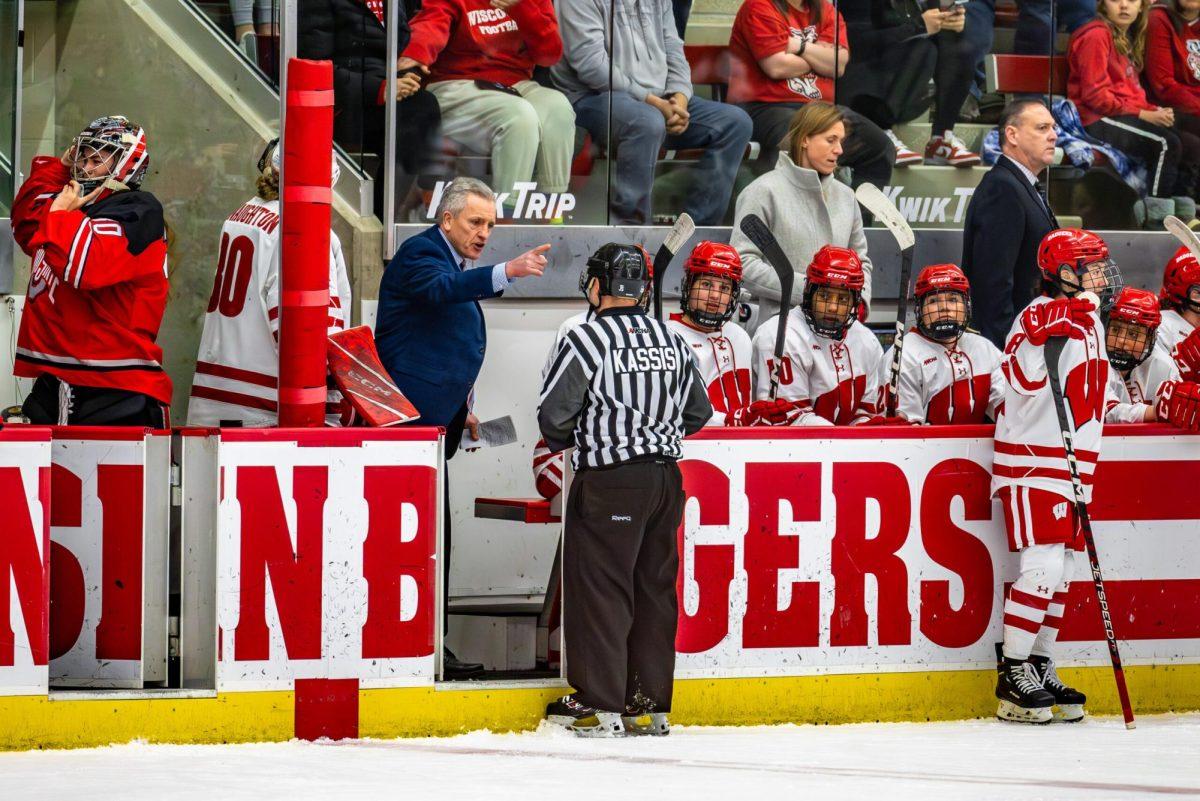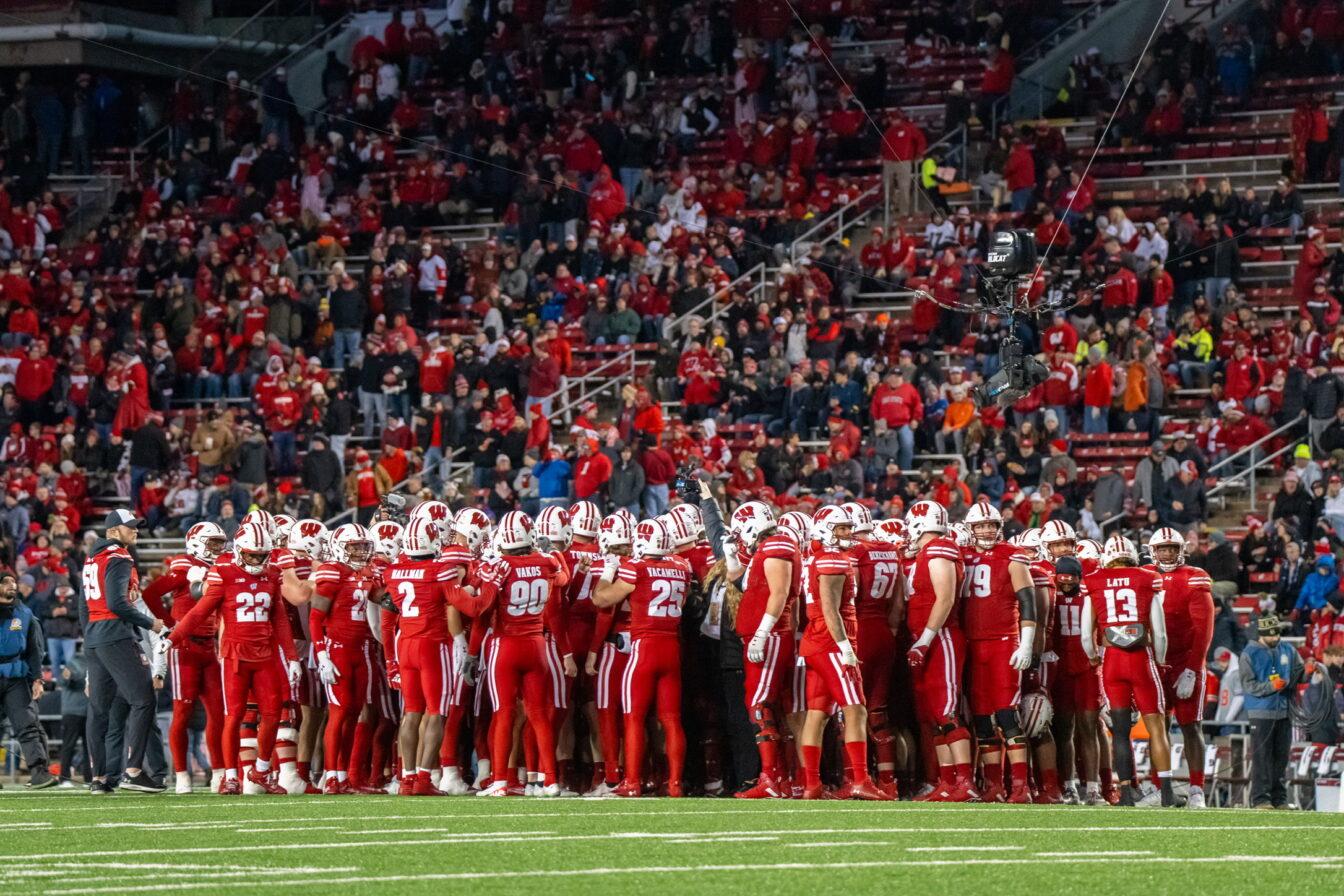Gilbert Arenas finally shut up.
The mouthy Washington Wizards guard is probably more known for his outlandish behavior than for his play on the court. He regularly predicts he will hit a game-winning shot — only to see the Wizards lose by 12. He loves media attention (and attention of any kind) and runs his own blog. Arenas isn’t scared to say what he thinks — much to the chagrin of his coaches and teammates, who have never been able to filter what comes out of his mouth.
As it turns out, the only thing that can shut Gilbert Arenas up is Gilbert Arenas.
The three-time All-Star was fined $25,000 — or more than I’ll probably make my first year out of school — by the NBA for refusing to speak to the media during the preseason. It seems like a strange about-face for a guy who throws his jersey into the crowd after games.
As it turns out, Arenas is done being the funny guy. In an AP report, he said, “I don’t feel like speaking anymore. I just want to go out there and play.”
Which is fine — if Agent Zero wants people to focus more on his points totals than his halftime activities, I won’t get in his way. But that doesn’t mean he can just plain stop talking to reporters.
As a member of the media, I might be a little biased toward athletes speaking to us. After all, a story needs quotes, which are hard to get when people don’t talk. The NBA recognizes that, which is why it basically forces players and coaches to be available for interviews after games and practices. The same goes for the other major sports leagues. It’s a public image thing.
So why not the NCAA?
NCAA athletes aren’t required to comment or speak after games or practices if they so choose. Head coaches can even completely cut off media access to their teams, as Oklahoma State football coach Mike Gundy did in the week leading up to the Cowboys’ season opener against Georgia.
That was a real shot to the nuts of Oklahoma State beat writers, who essentially had nothing to go off of for days. If Gundy wanted people to forget his top 10-ranked team was facing the No. 13 team in the nation to begin the season, then he certainly went about it the right way.
Gundy’s reasoning for the decision was he wanted his team to focus on its upcoming game — by prohibiting anyone from talking about the game. I guess it worked, since the Cowboys came out with a 24-10 win, but I like to think he could trust his players to focus whether or not they were doing 15 minutes of interviews during the week.
Even here at UW there have been cases where a mandatory obligation to speak to the media should have been enacted. In the midst of a second consecutive 15-40 season this spring, Wisconsin softball head coach Chandelle Schulte declined comment after a home loss, which actually said more by itself than any quotes she could have provided.
After the football team’s 44-14 victory over Wofford, UW running back John Clay declined to come out for interviews. Granted, he fumbled three times, but there’s no reason not to come out and do interviews after your team wins by 30 points. His absence after the game said a lot about his character.
Just yesterday, Bret Bielema forbade offensive lineman John Moffitt from speaking to the media, stating, “Moffitt is not available until he starts playing better.” I understand if someone’s sick or hurt or grieving the loss of a loved one, but holding a player back because you don’t think he’s playing well is not an excuse to cut him off from the media.
I know college athletes have different obligations than professionals do, but what about accountability? These student-athletes might not be getting paid, but their educations are being funded by universities — which in the case of public schools, are also funded by state dollars. Doesn’t the public at least have a right to a two-sentence answer about last night’s game? In the real world, you don’t have the option of declining to comment about victories or failures.
Whether they like it or not, NCAA athletes often get put in the public eye. If you score 20 points or allow 20, it doesn’t take a whole lot out of you to say something about the game afterward. The media isn’t obligated to cover your team — it chooses to. If we think the football team is worthy of our full attention and time, shouldn’t the football team extend the same courtesy to us? And if the main story in a soccer game is that the goalie gave up five goals, there isn’t much of a story if that goalie refuses to talk about it.
If the NCAA wants its student-athletes to pursue the “highest levels of integrity and sportsmanship” as it says in its core values, then it should require them to be available to the media. Once you’ve made the decision to play or coach at a major university, you have also agreed to the fact that you will be scrutinized, praised and criticized based on your performances. Regardless of how you feel about it, so long as you’re relevant, the media will follow you. In that case, wouldn’t you rather let your own words do the talking if given the opportunity?
Adam is a junior majoring in journalism. Think athletes have an obligation to speak to the media? Is he asking too much? E-mail him at [email protected].



















